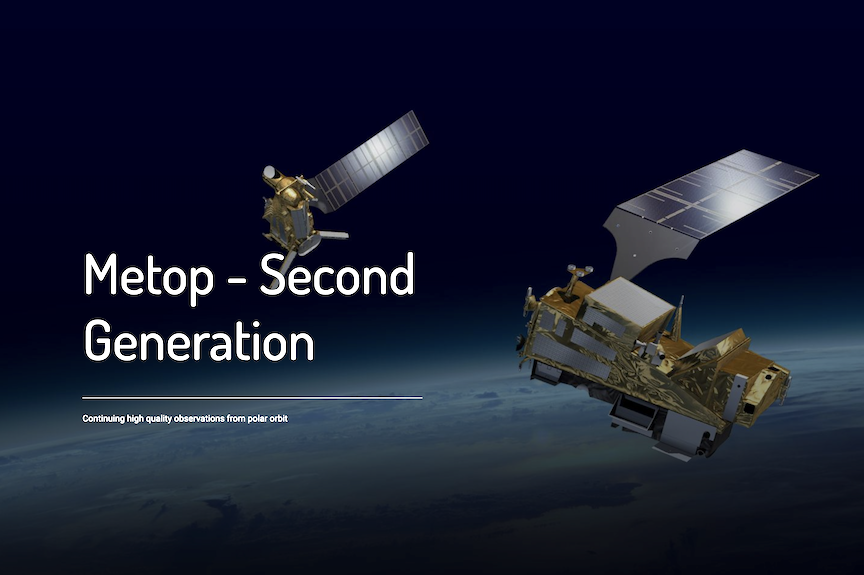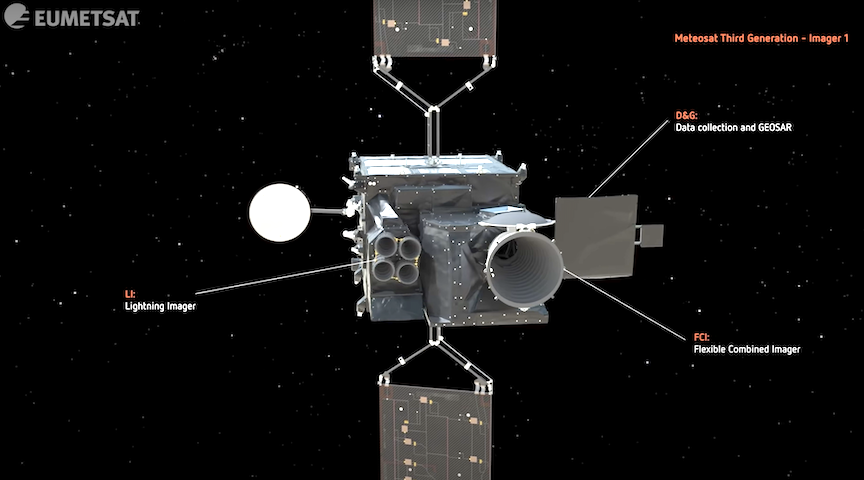
“Current changes to the climate are posing a threat to the Earth. The steps we take today matter for our future and EUMETSAT aims to play a part in supporting a more sustainable way forward for the planet,” said EUMETSAT Director-General Phil Evans, as the organization released a statement on its commitment to address climate change.
As Europe’s meteorological satellite agency, EUMETSAT is committed to taking steps necessary to address climate change and its consequences through cooperative action. In fact, this commitment is built into EUMETSAT’s core. Both its founding convention and mission statement put forth the operational monitoring of the climate and the detection of global climatic changes as one of the agency’s fundamental objectives.

In order to ensure it fulfills its mission in the long term, EUMETSAT will extend its Meteosat and Metop series with Meteosat Third Generation (MTG) and EUMETSAT Polar System – Second Generation, ensuring availability of data into the late 2040s. The first satellite of the MTG constellation will be launched later this year.

Global temperatures are rising, with regional consequences that are becoming more and more evident. Greenland experienced its highest temperatures on record in September 2022, in a year some parts of the country recorded highs more than 8°C above monthly averages. Global challenges require global observations, modeling and analysis: the continuous monitoring of all climate components of the Earth system is a necessity.
Through data from its own satellite missions, combined with data from partner agency satellite missions, EUMETSAT produces data products about the atmosphere, land, and ocean. These products form the basis of high-quality, long-term climate records of essential climate variables that are important for understanding and monitoring the physical characteristics of Earth.
In addition to maintaining records of essential climate variables, EUMETSAT contributes to implementing the Paris Agreement, informs the United Nations about climate change, and provides continuous, long-term operational satellite service.

The organization also supports the Global Climate Observing System (GCOS), which held its second Climate Observation Conference this week in Darmstadt, Germany, to assess how to improve the current global climate observing system and better support climate understanding, analysis, and nadaptation.
Together with its international partners, EUMETSAT plays a crucial role in providing the global community with the Earth observation tools it needs. The experts of the Intergovernmental Panel on Climate Change chose to include 45 observation products with EUMETSAT input in the conclusions of the Working Group 1 of the Sixth Assessment Report, issued in 2021. This accounts for 36% of all data sets in the report that make use of satellite data.
